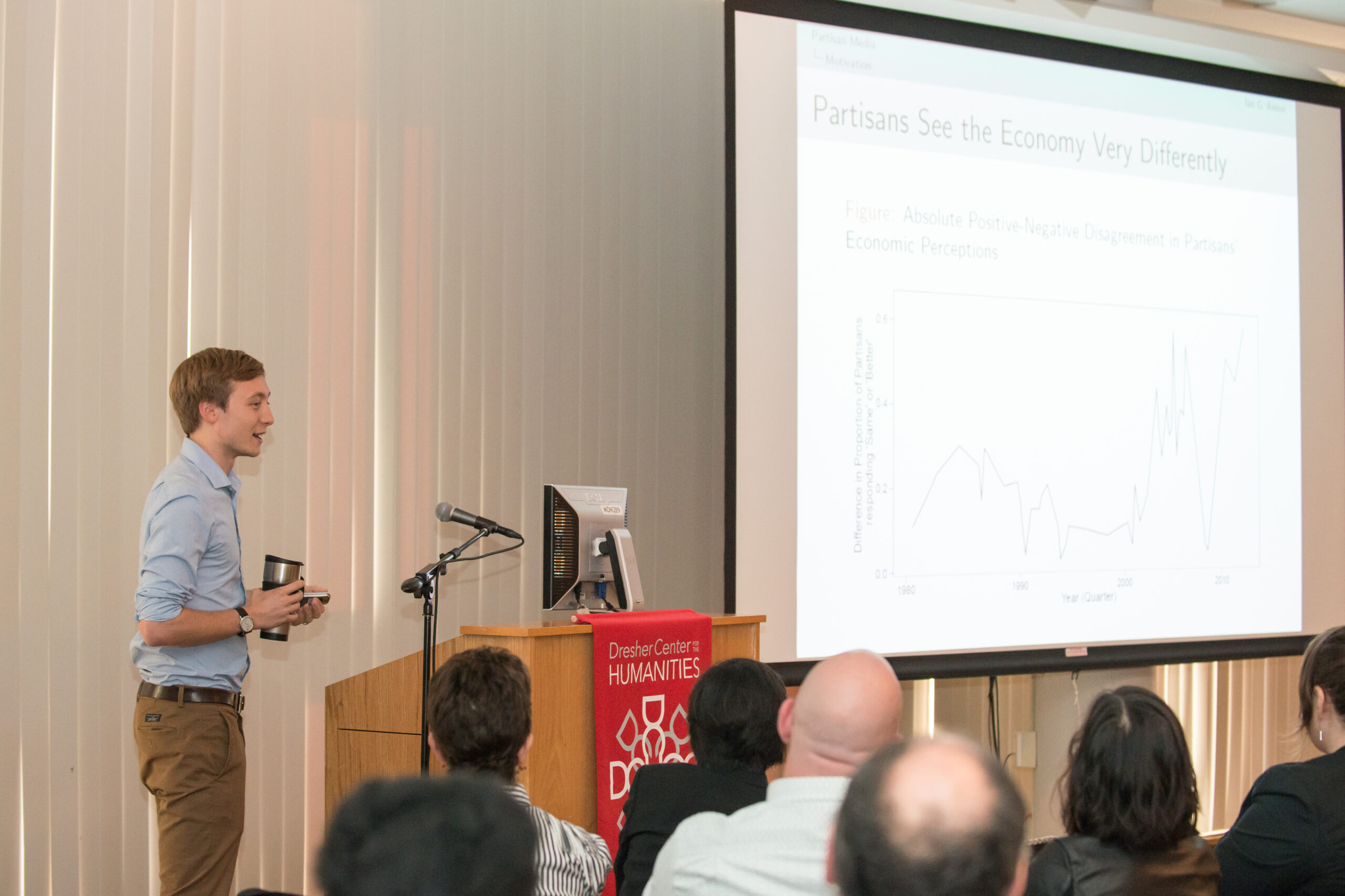In a new article published in The Conversation, Ian Anson explains how biased economic perceptions can be shaped by news media coverage. Anson, an assistant professor of political science, argues that in such a partisan presidential election year, Republicans and Democrats are more likely to have different interpretations of the economy.
Anson’s article, titled “A tale of two GDPs: Why Republicans and Democrats live in different economic realities,” focuses on two recent research papers in which he investigates why the political parties can’t agree on even basic, straightforward economic facts.
“I take up this question by investigating how biased economic perceptions are formed and maintained. The results do not paint a particularly rosy picture of the future of economic accountability, for two reasons,” Anson writes.
“One is that contemporary partisan media play a subtle yet powerful role in forming these biases. Another is the discovery that partisans perform Simone Biles-esque mental gymnastics to maintain biases in their economic beliefs – even when they know things about the economy that go against their favorite partisan talking points.”
Anson has research interests in the study of American voting behavior, public opinion, media and politics, inequality, quantitative methods, and the scholarship of teaching and learning. He teaches courses on American politics, media, and political behavior.
His article was also picked up by other media outlets. For a complete list, see below.
Why Republicans and Democrats live in different economic realities (Newsweek)
The next president needs the support of all to rebalance the economy (U.S. News and World Report)
The different economic realities of Democrats and Republicans (BYU Radio)
Why Republicans and Democrats can’t agree on basic economic facts (New Republic)
A tale of two GDPs: Why Republicans and Democrats live in different economic realities (Observer Politics)
Image: Ian Anson presents his research at a Dresher Center event. Photo by Marlayna Demond ’11 for UMBC.
Tags: CAHSS, PoliticalScience, Research

